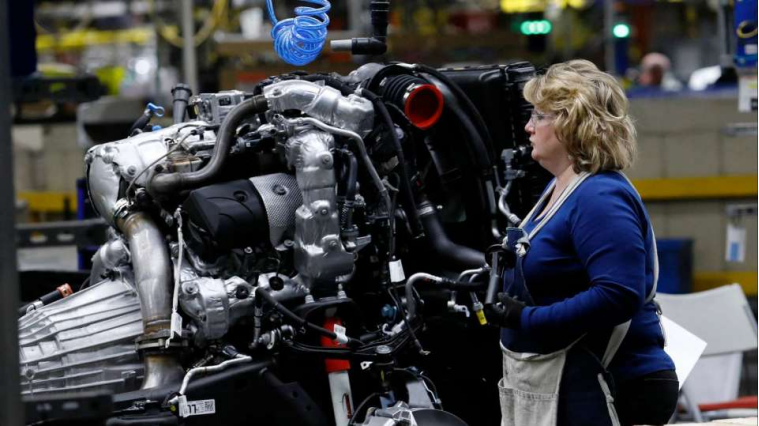Сырье расходы продолжают расти, говорится, что цена автомобильного чипа IDM увеличится на 10-20% в следующем году
Oct 21,2021

Согласно инсайдерам отрасли, чтобы справиться с непрерывным увеличением цен на сырье, такое как меди, золото, нефть и кремниевые вафли, IDM, такие как Infineon, NXP, Renesas, Ti и STMicroElectronics, готовит к увеличению своих цитатов для автомобильных фишек в 2022 на 10%. % -20%.
«Электронные времена» процитировали вышеупомянутое лицо, как говоря, что более подробные детали нового раунда цен IDM еще не ясны, но автопроизводители определенно увидят затраты на обложку в следующем году. В предыдущие месяцы цены на некоторые чипы с серьезными нехватками поставок резко возросли.
В то же время меры по сокращению Китая имеют еще одно серьезное влияние на глобальную цепочку автомобильной поставок. Источник подчеркнул, что, поскольку Magnesium является ключевым материалом алюминиевого сплава для изготовления редукторов, рулевых колонн, крышек топливных баков и баз тормоза и других механических металлов, его производство резко уменьшается, угрожая непрерывности производства автомобилей.
В настоящее время China приходится 85% мирового поставок магния, а провинция Шэньси является основной производственной базой с примерно 50 магнезийными моллюсками. Однако, согласно источникам, в соответствии с мерами сокращения местного самоуправления, половина из них требовалась остановить производство, а другая половина работает на уровне 50%.
Источник сказал, что европейские акции магния будут использованы в течение нескольких недель, и прерывание поставок этого материала может ослабить емкость поставок всей автомобильной цепочки поставок, поскольку не существует замены магния в производстве механических частей алюминиевого сплава. Отказ В прошлом месяце импортная цена Магния в Европе выросла на 75%.
Хотя по сравнению с узкой подачей автомобильных чипсов, запас металлических механических деталей, используемых в автомобильной продукции, достаточно, но человек сказал, что если меры по сокращению продолжаются, она вскоре может стать нехваткой, что повлияет на производство автомобилей.
Следует отметить, что с третьего квартала 2021 года Глобальные автопроизводители сократили прогноз роста продаж на этот год с 15% до менее чем на 10% из-за увеличения сложности в обеспечении поставок ключевых компонентов.
«Электронные времена» процитировали вышеупомянутое лицо, как говоря, что более подробные детали нового раунда цен IDM еще не ясны, но автопроизводители определенно увидят затраты на обложку в следующем году. В предыдущие месяцы цены на некоторые чипы с серьезными нехватками поставок резко возросли.
В то же время меры по сокращению Китая имеют еще одно серьезное влияние на глобальную цепочку автомобильной поставок. Источник подчеркнул, что, поскольку Magnesium является ключевым материалом алюминиевого сплава для изготовления редукторов, рулевых колонн, крышек топливных баков и баз тормоза и других механических металлов, его производство резко уменьшается, угрожая непрерывности производства автомобилей.
В настоящее время China приходится 85% мирового поставок магния, а провинция Шэньси является основной производственной базой с примерно 50 магнезийными моллюсками. Однако, согласно источникам, в соответствии с мерами сокращения местного самоуправления, половина из них требовалась остановить производство, а другая половина работает на уровне 50%.
Источник сказал, что европейские акции магния будут использованы в течение нескольких недель, и прерывание поставок этого материала может ослабить емкость поставок всей автомобильной цепочки поставок, поскольку не существует замены магния в производстве механических частей алюминиевого сплава. Отказ В прошлом месяце импортная цена Магния в Европе выросла на 75%.
Хотя по сравнению с узкой подачей автомобильных чипсов, запас металлических механических деталей, используемых в автомобильной продукции, достаточно, но человек сказал, что если меры по сокращению продолжаются, она вскоре может стать нехваткой, что повлияет на производство автомобилей.
Следует отметить, что с третьего квартала 2021 года Глобальные автопроизводители сократили прогноз роста продаж на этот год с 15% до менее чем на 10% из-за увеличения сложности в обеспечении поставок ключевых компонентов.
